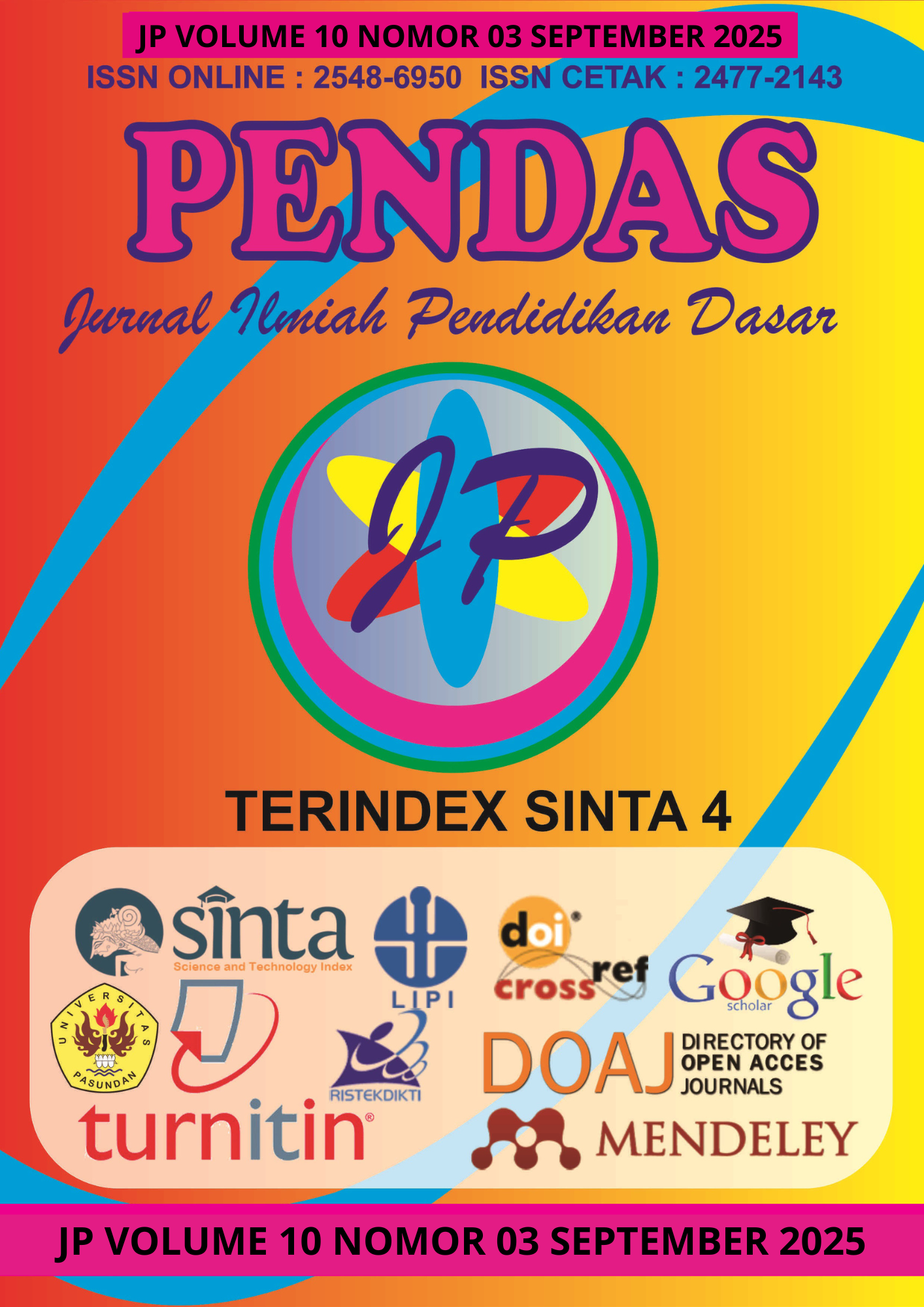SURVEI TINGKAT KETERAMPILAN MOTORIK DALAM BERMAIN GAME ONLINE PADA SISWA KELAS 5 SDN
DOI:
https://doi.org/10.23969/jp.v10i3.32746Keywords:
online games, fine motor skills, elementary school studentsAbstract
This study aims to analyze the fine motor skills level of fifth-grade students at SDN 7 Sape who actively play online games and to identify the relationship between playing intensity and their motor skills. This research employed a quantitative approach with a descriptive-exploratory survey design. The sample consisted of 15 students selected purposively based on the criterion of playing online games at least three times a week. Data were collected through an online gaming habit questionnaire, fine motor skill tests, and direct observation, then analyzed using descriptive statistics and Pearson correlation tests. The results showed an average fine motor skill score of 38.2 out of a maximum score of 50, categorized as good. Most students were in the good category (40%) and very good category (20%), with well-trained hand–eye coordination and finger reaction speed. However, accuracy and neatness remained weaknesses, with only 47% of students achieving a good category. These findings indicate that online games can positively contribute to visual coordination and reaction speed if played in reasonable durations and with supervision, but do not fully develop motor skills requiring precision and slow movement control. The study recommends regulating playing time, selecting educational games, and increasing creative physical activities to support comprehensive motor skill development.
Downloads
References
Agata, L. (2015). Pengaruh kegemaran bermain game terhadap kemampuan menalar siswa di SD N Premulung No 94 Surakarta tahun 2014/2015. Universitas Muhammadiyah Surakarta.
Anderson, C. A., Gentile, D. A., & Buckley, K. E. (2010). Violent video game effects on children and adolescents: Theory, research, and public policy. Oxford University Press.
Bonney, E., Ferguson, G. D., Smits-Engelsman, B., & Steenbergen, B. (2023). Peningkatan kemampuan atensi setelah lima minggu bermain video game aktif pada anak-anak dengan dan tanpa gangguan koordinasi perkembangan. Frontiers in Psychology. https://pubmed.ncbi.nlm.nih.gov/36943425/
Budiman, H. (2017). Peran teknologi informasi dan komunikasi dalam pendidikan. Jurnal Pendidikan Islam, 8(1), 31–47. https://doi.org/10.21580/jpi
Green, C. S., & Bavelier, D. (2003). Action video game modifies visual selective attention. Nature, 423(6939), 534–537. https://doi.org/10.1038/nature01647
Indonesia, A. P. J. I. (2017). Penetrasi & perilaku pengguna internet Indonesia tahun 2017. APJII. https://apjii.or.id
Irvani, M. L. (2020). Hubungan intensitas bermain game mobile online dengan kemampuan motorik siswa kelas VII di SMP Negeri 4 Ngaglik [Universitas Negeri Yogyakarta]. https://eprints.uny.ac.id
Khaerudin, R. (2023). Efek Game Online Mobile Legends terhadap Akhlak Anak Usia 12-15 di Desa Kemawi Kecamatan Somagede Kabupaten Banyumas. Universitas Islam Indonesia.
Nouchi, R., Taki, Y., & Kawashima, R. (2024). Keterampilan bermain game berhubungan dengan fungsi kognitif pada orang dewasa berusia 20–40 tahun: Bukti dari studi cross-sectional. Frontiers in Psychology, 15. https://pubmed.ncbi.nlm.nih.gov/39457746/
Prensky, M. (2001). Digital game-based learning. McGraw-Hill.
Sari, N. P., Wahyudi, E., & Dewi, J. K. (2023). Analisis Pengembangan Motorik Kasar Anak Dalam Pelaksanaan Ekstrakurikuler Permainan Futsal Kelas V Sdn 07 Rejang Lebong. Institut Agama Islam Negeri Curup.
Downloads
Published
Issue
Section
License
Copyright (c) 2025 Pendas : Jurnal Ilmiah Pendidikan Dasar

This work is licensed under a Creative Commons Attribution 4.0 International License.














































